United Nations Human Rights Office
The United Nations Human Rights Office represents the world's commitment to universal ideals of human dignity. We have a unique mandate from the international community to promote and protect all human rights.
The United Nations Human Rights Office's headquarters are in Geneva, Switzerland. It has an office at the United Nations Headquarters in New York, country and regional offices, and human rights advisers assigned to United Nations Country Teams and United Nations peacekeeping missions around the world.
Learn more about the United Nations Human Rights Office here.
United Nations Human Rights Office (Seoul)
The United Nations Human Rights Office (Seoul) has been established in order to carry out these mandates:
• Strengthen monitoring and documentation of the situation of human rights as steps towards establishing accountability in the Democratic People's Republic of Korea
• Enhance engagement and capacity-building with the Governments of all States concerned, civil society and other stakeholders
• Maintain visibility of the situation of human rights in the Democratic People's Republic of Korea including through sustained communications, advocacy and outreach initiatives
The structure and its staff function independently and in accordance with UN principles.
UN Human Rights Office (Seoul) Leaflet
5 years of the UN Human Rights Office (Seoul)
How did it come about?
The Office of the High Commissioner for Human Rights in Seoul is a concrete follow-up to the report of the Commission of Inquiry on human rights in the Democratic People’s Republic of Korea.
On 21 March 2013, at its 22nd session, the United Nations Human Rights Council mandated the Commission of Inquiry on human rights in the Democratic People’s Republic of Korea to investigate the systematic, widespread and grave violations of human rights in the Democratic People’s Republic of Korea.
About a year later, the Commission of Inquiry submitted a report to the Human Rights Council, detailing its findings and recommendations. In a resolution in March 2014, the Human Rights Council requested the Office of the High Commissioner for Human Rights to "follow up urgently on the recommendations made by the Commission of Inquiry" on the Democratic People's Republic of Korea" and provide the Special Rapporteur on the situation of human rights in the Democratic People's Republic of Korea with increased support, including through the establishment of a field-based structure.
Promoting Accountability in the Democratic People’s Republic of Korea
The United Nations Human Rights Council decided at its 34th session in March 2017 (RES/34/24) to strengthen our capacity to monitor and document human rights violations in the Democratic People's Republic of Korea, particularly those that may amount to crimes against humanity. This mandate was extended in 2019 (RES/40/20). In March 2021 (RES/46/17), the Council decided to continue this work for another two years. To fulfil this mandate, we have established a team of dedicated experts on legal accountability to identify, collect and preserve information and evidence from various sources about human rights violations, to analyse information collected, notably in the light of international criminal law standards and to explore and promote strategies for accountability.
We have established a central information and evidence repository, which is a central archive for preserving and managing information and evidence of human rights violations in the Democratic People’s Republic of Korea. The repository will bring together information and evidence including interviews, reports, satellite imagery, maps, court documents, videos, audio recordings and petition letters from various sources. The repository will be a key resource for any future national or international truth and justice processes. It will also facilitate the identification of elements of crimes, modes of liability and possible perpetrators, thus assisting future accountability mechanisms.
